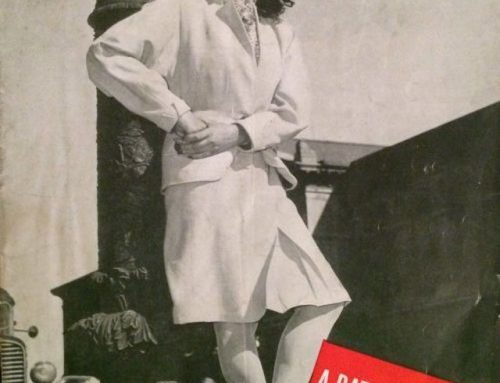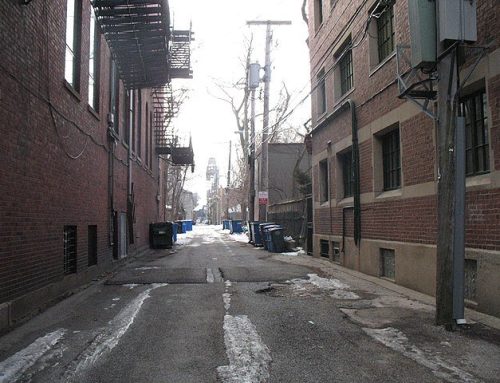Last year, there were 581 opioid overdose deaths in the City of Chicago, representing a 93-percent increase from the 301 such deaths reported in 2013, according to the Illinois Department of Human Services.
Of course, the spike in opioid abuse is a national problem, which in October led to President Donald Trump declaring it a national public health emergency. But ground zero for the opioid epidemic is the Rust Belt, a region that sees Chicago as a beacon of opportunity. And so just as budding professionals from across the Midwest migrate to the region’s capital city, so too do a growing number of opioid abusers.
According to photojournalist Lloyd DeGrane, who’s been documenting homelessness and its many causes in Chicago for two and a half years now, these “opioid migrants” find easy money panhandling in the Loop, easy access in the open-air drug markets of the city’s West Side, shelter within the viaducts of Lower Wacker Drive and areas close to Downtown Chicago, and a police department that is more tolerant of their presence than law enforcement in the small towns and suburbs from whence they came.
DeGrane’s photographs have been produced with support from the Social Justice News Nexus at the Medill School of Journalism at Northwestern University. The text accompanying the following photographs features DeGrane in his own words. —Jordan Heller







Incredible, honest images.
No words can explain my sorrow. They are all somebody’s children, fathers, sisters, friends, mothers. I have see many of them on the green line. I want to cry every time. I want to help, but I don’t. It feels impossible.
Yes Dan is my son, growing up he went to School and had a full-time job. He saved every dime. He was kind of a loner, he never went out on weekends, instead he worked. After high School he got a better job, met some people and wanted to be a part of the group, he started smoking pot snd that is where it all started. He kept doing harder drugs, drugs i didnt know he was doing. He also started drinking heavy. He had a run in with the law over drinking him and Rhonda decided to hit the road, ended up in Chicago. Ended up using and being homeless. I worry about him every single day as a mother. I am very grateful for people like Llyold. Who checks up on Dan to make sure he is okay when i havent heard from him. As a Mother my sons addiction has been hard. Your always expecting that call.
Powerful powerful images of a life unknown to most Americans.
I know tree personally. Or I used to rather. Tree wasn’t his street name! it was the name he gained when he was younger. If you really knew his story you would be saddened deeper than you already are.
Hi Melissa,
I see Tree(Cody) all the time. I’d like to hear more.
Lloyd DeGrane
I would like to share a story with you .My grandson’s father was a correction officer became hurt on the job several times .He was prescribed a opioids for his pain .They seem to be not enough he over dosed on herion April of this year The pain I see in my grandson’s eyes as he wears a necklace with him and his Daddy on it the tears roll down his face he just wants his Dad back .
When I shared my grandson’s story my email came up wrong just caught it
NEWS FLASH !!!!!! IT HAS BEEN AN PROBLEM FOR YEARS IN CHICAGO. IT ONLY IS GETTING NATIONAL ATTENTION DUE TO MORE YOUNG MIDDLE CLASS PEOPLE YOUNG AND OLD ARE OVERDOSING. I’VE BEEN A SUBSTANCE ABUSE NURSE FOR YEARS AND WORK WITH ADDICTS WHO ARE POOR AND POOR WORKING CLASS AND YES IT WAS A LOT OF THEM HAVE BEEN OVERDOSING FOR YEARS. IT MAKES ME MAD THAT NOW IT IS BROUGHT TO ATTENTION NOW. WHAT ABOUT THE YEARS BEFORE WHEN IT WAS HAPPEN TO ADDICTS WHO WERE POOR.
Hi Jevonne,
You are absolutely correct about that. My story, ‘The Opioid Migrants of Chicago’ is only a small part of the ‘big story’. The migrants that come here are mostly white. That’s true for this story. For the most part, I work alone and I’m trying to document homelessness and it’s causes. You can Google me and see some of the other articles I’ve done about this topic. I am now focused on the health concerns attributed to homelessness. I’m finding that black, middle aged men seem to be the most severely affected by not only the harsh conditions of homelessness but decades of substance abuse as well. They all relate to me stories about dead friends and some consider themselves to be the ‘walking dead’. I will continue, slowly, meticulously to focus on these issues. Thanks for your input.
My heart go out to all the homeless and forgotten people. It is a shame that there isn’t enough help for the down trodden. We don’t needs cuts in health and welfare programs. Time to start caring for our own.
This story really brings to life a huge problem in America. Everyone thinks that people that get addicted to opioids are just druggies when in fact it often started from prescriptions from doctors and lots of pain with a medical crisis. This can happen to lots of people.